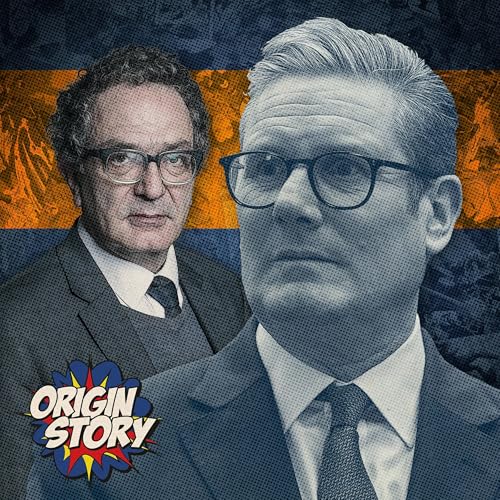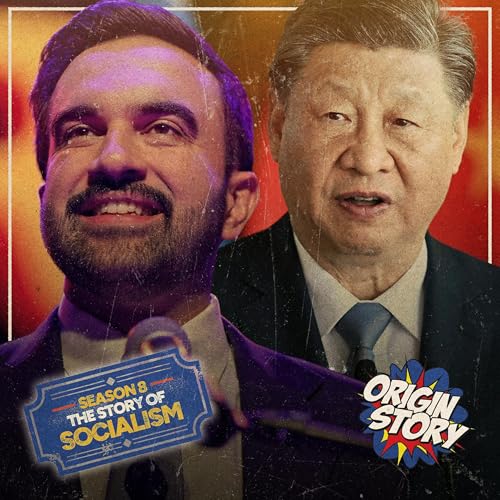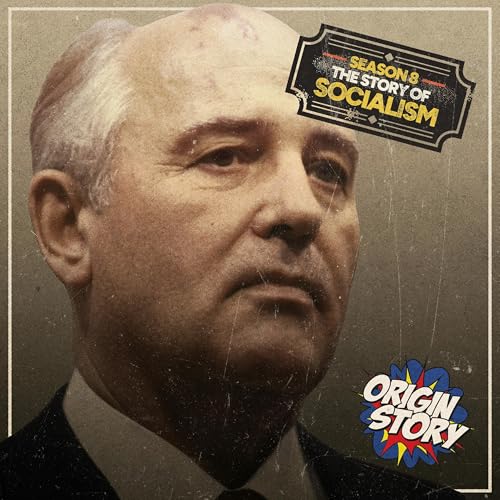Origin Story is live at the Bloomsbury Theatre, London on Weds 15th April 2026 - tickets selling fast, get yours here Welcome to a between-season bonus episode of Origin Story. We’ve missed you! This one emerged from our three-parter on the history of the Labour Party and one of the burning obsessions of British politics: the faction known as Blue Labour and its ubiquitous founder Maurice Glasman. As Keir Starmer’s government continues to alienate its base in order to chase the same socially conservative voters as Reform UK, fingers are pointing at chief of staff Morgan McSweeney and his connections to Blue Labour, turning Glasman into the party’s eminence grise. But how influential is Glasman really? And where did Blue Labour come from? The story begins in 2008, when the financial crisis coincides with the death of Glasman’s mother. The jazz-loving, City-hating, chain-smoking academic and community organiser invents Blue Labour: blue as in sad and blue as in “conservative socialism”. As New Labour falls to pieces, Glasman’s maverick vision of Labour’s long history and possible future intrigues heavyweights from across the party. He’s elevated from obscurity to the House of Lords by Ed Miliband but explodes on the launchpad after some provocative statements about immigration and Europe. Amid accusations of racism, misogyny and toxic nostalgia, Blue Labour Mark 1 burns out. When Blue Labour resurfaces with a vengeance in 2025, it has been thoroughly radicalised by a decade of Brexit and right-wing populism. Having been JD Vance’s personal guest at the second inauguration of Donald Trump, Glasman is now praising MAGA while waging all-out war on immigrants, liberals and the so-called “lanyard class”. Original Blue Labourite Marc Stears calls Blue Labour Mark 2 “a clear and present danger to our politics”. How did Blue Labour lurch from the party’s soft left to its hard right? Why do so many of the people who once found Glasman’s ideas stimulating now find them horrifying? Is Blue Labour, then and now, a symptom of a party in intellectual crisis? What exactly is Glasman’s connection to Morgan McSweeney and Home Secretary Shabana Mahmood? And is the rogue peer really as significant as he, and his enemies, like to make out? Reading list Books Rowenna Davis – Tangled Up in Blue (2011) Ian Geary and Adrian Pabst – Blue Labour: Forging a New Politics (2015) Maurice Glasman, Jonathan Rutherford, Marc Stears and Stuart White – The Labour Tradition and the Politics of Paradox (2011) Maurice Glasman – Blue Labour: The Politics of the Common Good (2022) Gabriel Pogrund and Patrick Maguire – Get In: The Inside Story of Labour Under Starmer (2025) Articles • Philip Collins – ‘Maurice Glasman and the origins of Blue Labour’, Prospect (24 February 2025) • Julian Coman – ‘Maurice Glasman, architect of Blue Labour: “Labour needs to be itself again”’, The Observer (25 September 2022) • Rachel Cooke – ‘Maurice Glasman: Labour’s Trump Card’, The Observer (25 April 2025) • Ethan Croft – ‘Blue Labour is fighting for its future’, The New Statesman (26 November 2025) • Annabel Denham - Lord Glasman: ‘Shabana is like Elizabeth I – devoted to her job. She’s utterly unique’, The Telegraph (23 November 2025) • Jonathan Derbyshire – ‘Voice of the Heartlands’, The New Statesman (7 April 2011) • Maurice Glasman - Maurice Glasman: my Blue Labour vision can defeat the coalition, The Guardian (24 April 2011) • Toby Helm and Julian Coman – ‘Maurice Glasman – the peer plotting Labour’s new strategy from his flat’, The Observer (16 January 2011) • Preet Kaur Gill, ‘Labour Must Go Blue’, The Telegraph (6 January 2026) • Dan Hodges – ‘Exclusive: the end of Blue Labour’, The New Statesman (20 July 2011) ... Reading list continues on Patreon Written and presented by Ian Dunt and Dorian Lynskey. Producer: Chris Jones and Simon Williams. Music by Jade Bailey. Art by Jim Parrett. Logo by Mischa Welsh. Group Editor: Andrew Harrison. Origin Story is a Podmasters production Learn more about your ad choices. Visit podcastchoices.com/adchoices
Show More
Show Less
 1 hr and 6 mins
1 hr and 6 mins Feb 4 20261 hr and 30 mins
Feb 4 20261 hr and 30 mins Dec 20 20251 hr and 40 mins
Dec 20 20251 hr and 40 mins Dec 17 20251 hr and 35 mins
Dec 17 20251 hr and 35 mins Dec 10 20251 hr and 32 mins
Dec 10 20251 hr and 32 mins 1 hr and 13 mins
1 hr and 13 mins Dec 3 20251 hr and 5 mins
Dec 3 20251 hr and 5 mins 2 hrs and 3 mins
2 hrs and 3 mins
